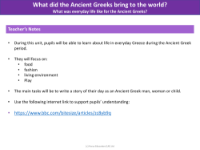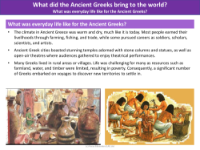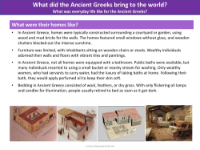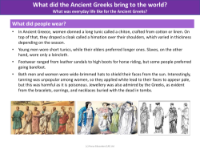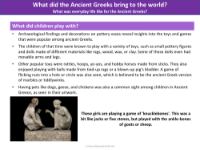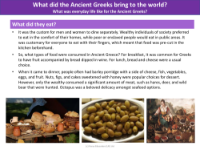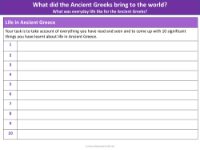What was everyday life like for the Ancient Greeks? - Presentation
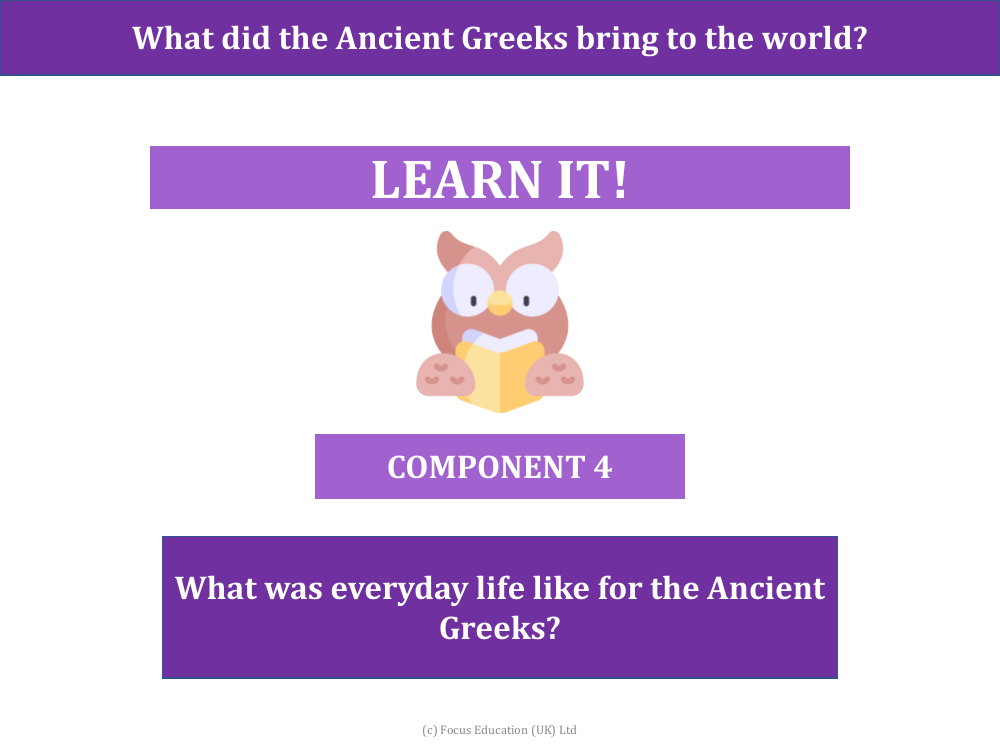
History Resource Description
Delving into the everyday life of the Ancient Greeks, pupils are set to explore various aspects of historical Greek culture including their food, clothing, living conditions, and leisure activities. The unit's primary assignment involves students writing a narrative from the perspective of an Ancient Greek man, woman, or child, detailing a day in their life. They will learn about the warm and dry climate of Ancient Greece, where the majority of people were engaged in farming, fishing, and trading, with some venturing into careers as soldiers or scholars. Cities were known for their magnificent temples and open-air theatres, and despite the challenging rural life due to scarce resources, many Greeks sought new lands to settle. The lesson aims to provide a vivid picture of the past, from the structure of homes built around courtyards to the simple furniture and the use of public baths due to the absence of private bathrooms in many homes.
The attire of the Ancient Greeks was functional and varied with the seasons. Women wore chitons and himations, while men and slaves had their distinct styles of tunics. Footwear choices ranged from sandals to boots, and wide-brimmed hats were common to protect against the sun. Children's playtime included a variety of toys such as dolls, rattles, and balls, and even pets were part of their lives. When it came to dining, the Greeks had a custom of separate eating spaces for men and women, with the wealthy enjoying meals at home and others eating in public spaces. Their diet consisted of bread, cheese, porridge, vegetables, and fruits, with meat and seafood being more exclusive to the affluent. This comprehensive exploration of Ancient Greek life is designed to help students appreciate the historical significance and contributions of this ancient civilization.
